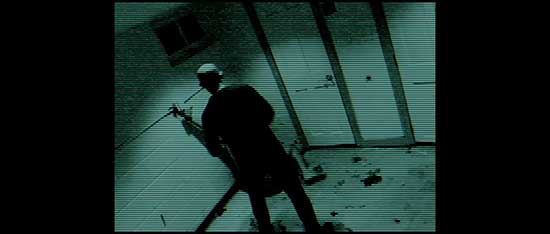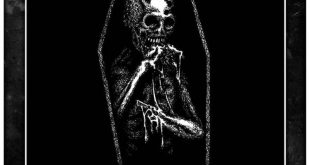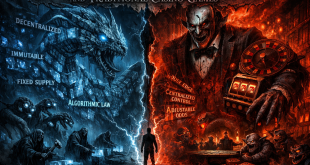 Horror has been a cornerstone of human storytelling for centuries, from ancient folklore to modern cinema. Whether through ghost stories whispered around campfires or immersive virtual reality experiences, the genre continues to evolve while holding onto its primal ability to evoke fear, thrill, and fascination. The question remains: why are we so drawn to horror? What is it about the grotesque, the terrifying, and the unknown that captivates audiences worldwide?
Horror has been a cornerstone of human storytelling for centuries, from ancient folklore to modern cinema. Whether through ghost stories whispered around campfires or immersive virtual reality experiences, the genre continues to evolve while holding onto its primal ability to evoke fear, thrill, and fascination. The question remains: why are we so drawn to horror? What is it about the grotesque, the terrifying, and the unknown that captivates audiences worldwide?
At its core, horror thrives on the human psyche’s dual attraction to fear and safety. The genre offers a controlled environment to confront the darker aspects of existence, from death and loss to the supernatural and the unknown. Unlike real-life horrors, which can leave us feeling powerless, fictional scares allow us to navigate fear with the safety net of knowing it’s not real. This paradox creates a unique blend of adrenaline and relief that keeps viewers coming back for more.
The Influence of Horror Beyond the Screen
Interestingly, the horror genre’s impact isn’t confined to films and books. It influences culture, fashion, and even online behaviors. One surprising intersection is the entertainment industry’s connection to digital platforms, including online gaming and gambling. For instance, online casinos have adopted horror themes, creating slot games featuring werewolves, zombies, and haunted houses.
Among these platforms, offshore sports betting sites have gained popularity, especially with their inclusion of themed games that align with cultural trends, including horror-inspired betting options. These platforms often combine the thrill of chance with the adrenaline of horror, making them appealing to niche audiences. Just like a horror movie keeps its viewers on edge, the unpredictability of these betting sites offers an analogous rush.
The Evolution of Horror
Horror has transformed drastically over the years. Gothic literature in the 19th century, such as Mary Shelley’s Frankenstein and Bram Stoker’s Dracula, introduced the archetypes of the monster and the vampire, which continue to resonate. The 20th century saw horror expand into film, with silent classics like Nosferatu and Universal’s monster movies paving the way for the genre’s golden age.
Today, horror transcends traditional storytelling formats. The digital age has birthed new mediums for horror, including found footage films, immersive video games, and even social media-driven urban legends like Slender Man. Each iteration reflects society’s evolving fears, from post-war anxieties to concerns about technology and climate change.
The Psychology of Fear
Fear is a universal emotion that has played a crucial role in human evolution. Our ancestors relied on fear to detect and avoid threats, ensuring survival. Modern horror taps into these primal instincts, manipulating sound, visuals, and storytelling to create an immersive experience. Jump scares, eerie silences, and suspenseful builds mimic real-life danger cues, activating the fight-or-flight response.
What makes horror particularly compelling is its ability to reflect societal issues. Zombies have often been used as metaphors for consumerism or pandemics, while home invasion thrillers explore themes of security and vulnerability. These narratives resonate deeply because they touch on fears we all share, whether consciously or subconsciously.
Horror as a Cultural Mirror
The themes and motifs within horror often serve as a mirror to the anxieties of the era. The Cold War inspired a slew of alien invasion movies, reflecting fears of the unknown and external threats. More recently, films like Get Out and Us delve into social issues such as racism and class disparity, using horror as a lens to explore systemic problems.
This cultural mirroring extends to the genre’s villains and monsters, which often embody collective fears. Vampires have evolved from monstrous predators to suave antiheroes, reflecting changing attitudes toward sexuality and power. Similarly, ghosts, once a staple of Victorian spiritualism, now often symbolize unresolved trauma and grief.
Why Horror Will Always Endure
Despite its dark themes, horror often leaves its audiences with a sense of catharsis. Surviving a terrifying experience, even vicariously, can be empowering. Horror also fosters a sense of community, as fans bond over shared scares and theories about their favorite films or stories.
As long as humans fear the unknown, the genre will continue to thrive. Horror’s ability to adapt and reflect the times ensures it will remain a relevant and vital part of storytelling for generations to come. Whether through tales of ancient curses, dystopian nightmares, or the creeping dread of a shadowy figure in the dark, horror reminds us of our humanity, our resilience, and our enduring fascination with the macabre.
 Horror News | HNN Official Site | Horror Movies,Trailers, Reviews
Horror News | HNN Official Site | Horror Movies,Trailers, Reviews





